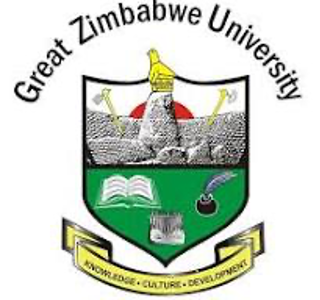By Ebenezah L. Jonhera
Zimbabwe, a land known for its diverse wildlife and rich natural heritage, faces a mounting crisis as rampant vulture poaching reaches alarming levels. The majestic birds, once revered in local cultures for their role in ecological balance and spiritual significance, are now being ruthlessly hunted down by poachers seeking to profit from their body parts. This illicit trade, driven by demand primarily from markets in Asia, particularly India and West African countries such as Ghana and Nigeria, poses a significant threat to Zimbabwe’s biodiversity and underscores the urgent need for coordinated action to stem the tide of vulture killings.
In recent years, Zimbabwean authorities have been grappling with a surge in vulture poaching incidents across the country especially in Gonarezhou and Hwange National Parks where they are abundant. Reports from wildlife enforcement agencies, the Zimbabwe National Parks Management (ZIMPARKS) indicate that poachers are targeting vulture nesting sites and protected areas with unprecedented intensity, leading to a devastating decline in vulture populations. What was once a thriving community of these iconic birds has now been reduced to scattered remnants, with entire colonies decimated by the relentless onslaught of poaching activities.
“The scale of vulture poaching we’re witnessing is deeply concerning,” remarked Tinashe Farawo, the spokesperson for the Zimbabwe Parks and Wildlife Management Authority. “Vultures play a crucial role in our ecosystems, scavenging on carrion and helping to prevent the spread of diseases. The loss of these birds could have far-reaching consequences for our environment.”
Investigations into the illicit vulture trade reveal a complex network of poachers, middlemen, and traffickers operating across Zimbabwe and beyond its borders. Poached vulture parts, including heads, talons, and feathers, are smuggled out of the country through clandestine channels, eventually finding their way into markets in countries like India, where they are highly sought after for their perceived medicinal properties and believed powers of luck and healing.
“The demand for vulture parts in traditional medicine practices, particularly in parts of Asia, is a driving force behind the poaching epidemic,” explained Prosper Dohwai, the Zimbabwe National Traditional Healers Association (ZINATHA) President Fuana and Flora Director Fidelis Nyamukondiwa a wildlife conservation expert closely monitoring the situation. “Despite efforts to raise awareness about the importance of vultures and the illegality of their trade, the demand persists, fueled by deeply entrenched beliefs and cultural practices.”
Local conservation groups and environmental activists have been sounding the alarm about the escalating crisis, calling for urgent action to address the root causes of vulture poaching and disrupt the illicit trade networks. They emphasize the need for community engagement, education, and strengthened law enforcement measures to tackle the problem effectively.
“The survival of vultures in Zimbabwe is at stake,” warned Chief Chitsa, a traditional leader whose area of jurisdiction includes the Gonarezhou National Park “We cannot afford to stand idly by while these magnificent birds are driven to the brink of extinction. It’s imperative that we take decisive action to protect them and preserve the ecological balance they contribute to.”
Zimbabwean authorities have stepped up efforts to combat vulture poaching, deploying increased patrols, implementing stricter penalties for poachers, which recently saw the killing of two poachers from Zambia and the sentencing of three others to nine years through collaboration with international law enforcement in the process helping to disrupt the supply chains fueling the illicit trade. However, the challenges remain formidable, with poachers adapting their tactics and exploiting loopholes in enforcement efforts.
“The fight against vulture poaching requires a multifaceted approach,” emphasized Dr Fulton Mangwanya, the ZIMPARKS Director said there is needs to address the underlying drivers of poaching, strengthen enforcement measures, and engage communities in conservation efforts to ensure the long-term survival of these birds.”
As Zimbabwe continues to grapple with the crisis of vulture poaching, which has seen more than 500 hundred thousands of vultures being the international community is urged to lend its support to conservation efforts and take a stand against the illegal wildlife trade. Failure to act decisively could have dire consequences not only for Zimbabwe’s biodiversity but also for the broader global ecosystem that relies on the vital role of vultures in maintaining ecological balance.







